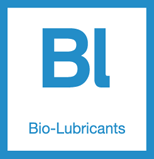Base Stocks & Components for Electric Vehicles
E-mobility is a booming sector in the lubricants industry. Other alternative driveline and mobility concepts like hydrogen-powered fuel cells are still in the very early development stages. Therefore, quiet and emission free electric and hybrid vehicles will begin to populate our streets and roads in the coming years. These new cars will still require lubricants to run. However, these fluids will differ from known technologies and will require new developments from all stakeholders in the industry. In particular, the base stock concepts show high potential to adopt new technologies and chemistries. It will be one of the drivers for new developments and research efforts from lubricant formulators and base stock producers alike.
The new fluids for electric vehicles will have to fulfill different functionality requirements than currently used lubricants. In particular, good thermal management in combination with the ability to work under the impact of high voltage is essential. These fluids will have to address the arising electrical, thermal, tribological and chemical challenges as well as material compatibilities with the new electric and hybrid engines. Providing necessary lubrication, wear and corrosion protection, high thermo-oxidative stability and long usage are all key to successful development of future dielectric fluids.
Emery's Bio-Lubricants division has responded to this technology challenge and its level of ambition. We have developed esters for use in new electric vehicle (EV) fluid development work and commercialized the first five products as listed below. In addition, our Bio-Lubricants division is open to joint technical development cooperation to tackle ongoing challenges for new fluids and lubricants as our R&D efforts continue.
Contact us at EV@emeryoleo.com for more technical and application information and to request a TDS or sample of our products.
| Product Name | Kin. Viscosity at 40 °C (mm²/s) | Flash Point (°C) | Acid Value | Pour Point (°C) | Description |
|---|---|---|---|---|---|
| DEHYLUB® 5005 EV Request TDS |
4.5 – 5.5 | > 170 | ≤ 0.3 | ≤ -30 | Fatty Acid Monoester |
| DEHYLUB® 5010 EV Request TDS |
26 – 27.5 | > 210 | ≤ 0.1 | ≤ -50 | Diester |
| DEHYLUB® 5015 EV Request TDS |
10 – 11.5 | > 200 | ≤ 0.3 | ≤ -55 | Diester |
| DEHYLUB® 5020 EV Request TDS |
12.5 – 14.5 | > 210 | ≤ 0.15 | ≤ -55 | Diester |
| DEHYLUB® 5025 EV Request TDS |
10 – 13 | > 210 | ≤ 0.3 | ≤ -65 | Diester |



